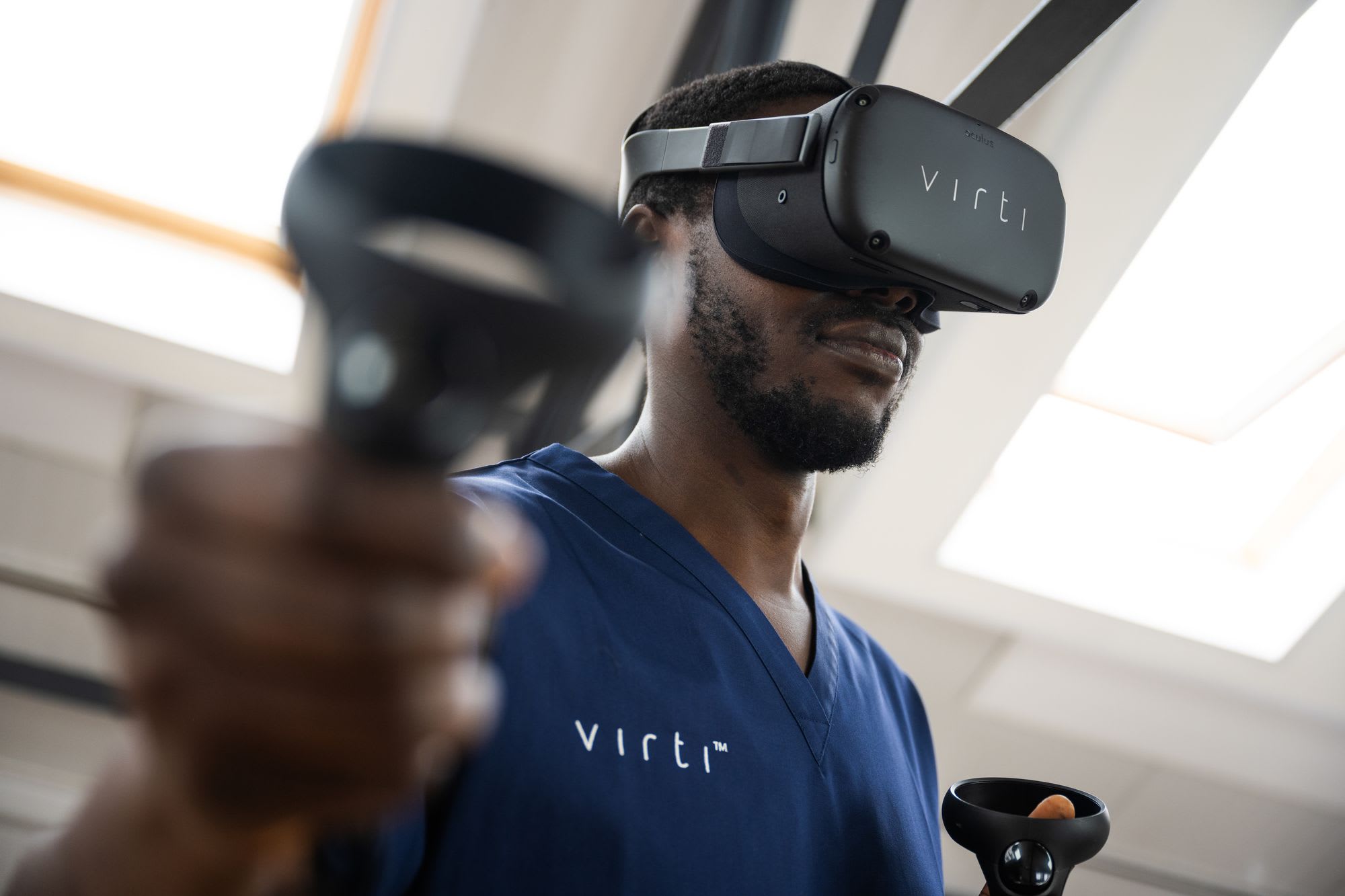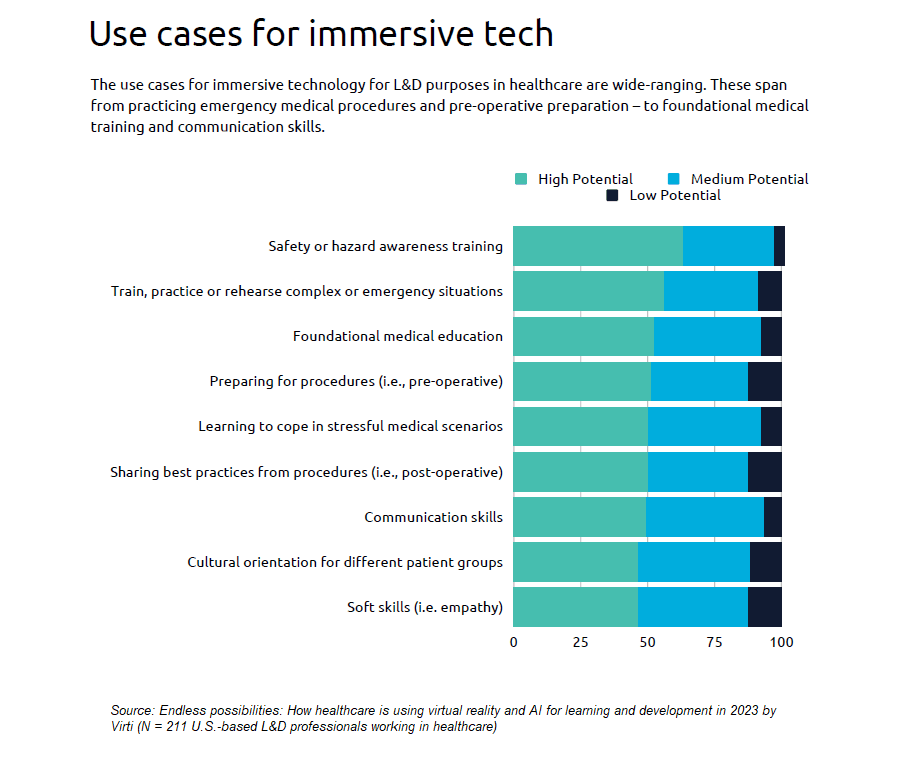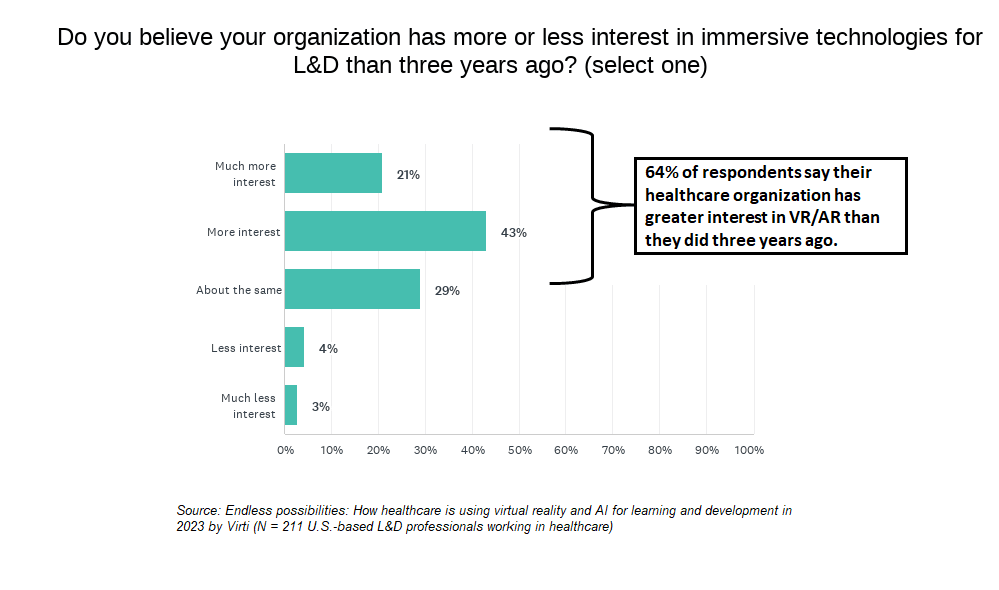
New York, NY – November 20, 2023 – A recent survey conducted by Virti found that more than three-quarters of healthcare organizations have implemented (34%) or plan to implement (43%) virtual reality (VR) technology. The survey polled 211 U.S. healthcare workers responsible for implementing such tools for training – many of whom are themselves credential providers.
Such promising adoption rates naturally lead to the question: How are healthcare institutions using transformational technology and immersive training like VR combined with artificial intelligence (AI)?
The survey revealed a broad range of use cases including pre-operative preparation, sharing best practices for medical procedures – and even soft skills development like communication and empathy. Virti supplemented the survey with qualitative interviews with medical professionals who are currently piloting VR and AI to add firsthand context to the findings.
Below are three illustrative examples:
1. Major teaching hospital in NYC finds time for training resident doctors with XR
A hospital simply can’t ask its 80 anesthesiology resident doctors to take an hour off from work to complete a training module. Extended reality (XR) is helping the hospital explore new ways to deliver both hard skills – Advanced Cardiac Life Support (ACLS) certification – and soft skills training like communication and empathy – which residents can complete at a time of their choosing.
UTMB has piloted VR simulations as part of its healthcare curriculum across five schools including Medicine, Nursing and Respiratory Care. Students get practical experience assessing patient safety and conducting patient interviews with a VR-based avatar that’s been programmed with generative AI. This gives students simulated clinical experience, which they would not receive otherwise.
3. HTC VIVE is transforming medical education with virtual reality
HTC VIVE helps hospitals and medical universities implement and use VR technologies around the world. So far, they have trained 2,500 medical professionals and students to use VR software to build 183 different courses. These courses cover a wide range of topics from Da Vinci robotic surgical training – to facilitating difficult conversations with patients diagnosed with cancer – to managing violence in the emergency room.
“Study after study demonstrates that medical professionals learn new concepts faster and retain more of what they’ve learned when they are immersed in a learning environment like virtual reality,” said Virti CEO Kurt Kratchman. “Whether it’s doctors joining a preceptorship to learn an innovative new surgical procedure from a top surgeon – or a university training our future healthcare providers – virtual learning experience has a proven impact on clinical performance.”
Virti has additional customer case studies available online. These include healthcare examples as well as other verticals such as logistics and e-commerce.
A copy of the survey report is also freely available for download here: “Endless possibilities: How healthcare is using virtual reality and AI for learning and development in 2023.”
About Virti
Virti’s cutting-edge platform provides virtual reality and artificial intelligence (VR/AI) to give your team the power to create immersive learning experiences inspired by your real world. Whether it’s managerial skills or warehouse safety, traditional training can be difficult to scale, expensive, and unable to recreate real-life scenarios. Ready to start creating environments where your teams love learning? Visit www.virti.com to learn more.
Media Contact:
Frank Strong
+1 202-352-5920
[email protected]


